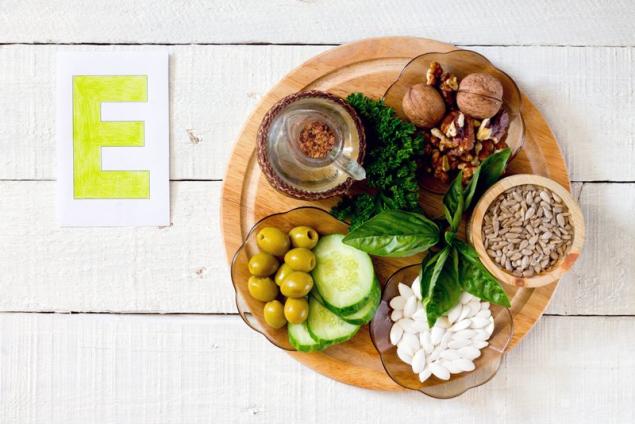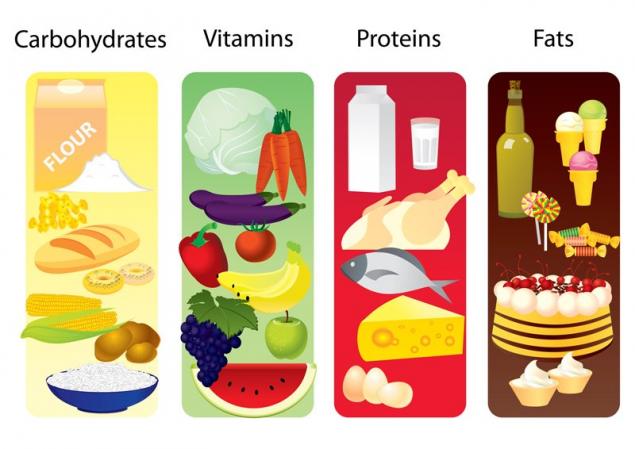197
Myths about feeding mothers
Every woman after the birth of a child automatically becomes an expert in the field of pediatrics and child psychology. Most often, her knowledge is based on her own experience. And at any opportunity, an experienced mother will try to teach a new mother, How to properly care for a babythan to feed and water.
But alas, almost all the advice from our grandmothers have long smelled of mothballs and are not only useless, but sometimes dangerous to health.

Based on clinically confirmed information, modern medicine has long developed official recommendations for women who breastfeed. All Western doctors adhere to these recommendations, they will not even think of talking about the restrictions in the diet of a young mother. The woman who gave birth is not sick and does not need a diet!
Of course, there is no one advice for all cases, but everything is much more cheerful than it seems after talking to your mother or mother-in-law. Coffee - you can, fish, red vegetables and fruits - necessary! And rash 6 months is the norm.

American doctor of medicine and reformer of the Ukrainian health care system Ulyana Suprun once again destroyed the myths about limited health care. diet. It is very simple: you do not need to torture yourself with diets or eat for two. You need to eat well and follow some rules.
Nutrition of the mother during breastfeeding
Young mothers and their mothers (who are already grandmothers), remember these recommendations! All children are different, and their temperaments, like the intestinal microflora, are different. Children need a healthy and happy mother.
You can eat everything (within reasonable limits) and limit yourself to what is not useful to anyone: smoking, alcohol, harmful and questionable food.
And you agree with these. nutritionist Or do you have a different opinion? Tell me everything you think in the comments! And don’t forget to show the article to your friends on social media.
But alas, almost all the advice from our grandmothers have long smelled of mothballs and are not only useless, but sometimes dangerous to health.

Based on clinically confirmed information, modern medicine has long developed official recommendations for women who breastfeed. All Western doctors adhere to these recommendations, they will not even think of talking about the restrictions in the diet of a young mother. The woman who gave birth is not sick and does not need a diet!
Of course, there is no one advice for all cases, but everything is much more cheerful than it seems after talking to your mother or mother-in-law. Coffee - you can, fish, red vegetables and fruits - necessary! And rash 6 months is the norm.

American doctor of medicine and reformer of the Ukrainian health care system Ulyana Suprun once again destroyed the myths about limited health care. diet. It is very simple: you do not need to torture yourself with diets or eat for two. You need to eat well and follow some rules.
Nutrition of the mother during breastfeeding
- No more eating.
A nursing mother needs 500-600 more calories than a non-pregnant and non-nourishing mother. If during pregnancy a woman recovered, there is no point in increasing the calorie intake. No extra food needed!
- Milk is never fatty.
Composition of breast milk It can change throughout the day and depending on the period of lactation. If the mother has a deficiency of water-soluble vitamins (C, B9, B12) - they will not be enough in milk. Fat-soluble vitamins (A, D, E, K) are stored in adipose tissue and enter the bloodstream and milk as you lose weight. - What is it?
There is no information in any of the recommendations that Eating a nursing mother in the first months After the birth of the child should be limited. Moreover, there are no bans on red and orange vegetables and fruits. Only diet It will help your mother stay healthy. Protein (meat, fish, eggs, legumes, nuts, seeds) is necessary to eat 2-3 times a day. If my mother is vegetarian, that's okay. It is necessary to use enough proteins of plant origin and necessarily supplements with calcium, vitamin D and B12.
During the day, you need to eat two portions of fruit and three portions of vegetables, including dark green and orange. It is a source of magnesium, folic acid and carotenoids.
In the diet can not do without carbohydrates. It is ideal to use whole grain products: bran bread, pasta and porridge. You should drink water when you are thirsty. Drinking tea with milk, compotes and juices to have milk is not necessary.
Underweight women need extra calcium, with anemia, iron. Anemia is not a contraindication to breastfeeding.
- Coffee, you can!
One to two cups of coffee a day is considered acceptable, especially if there are older children in the house. - Fish and seafood are necessary!
Fish and seafood contain essential fatty acids necessary for the development of the child’s brain. It is enough to eat fish and seafood 2-3 times a week, but avoid certain types (they can accumulate heavy metals). Among them are tuna, shark, king mackerel, octopus, oysters.
- No eating.
A nursing mother should not eat foods that cause allergies or intolerance in her, the father of the child or other close relatives. Feeding a nursing mother after the first month feeding and should no longer include: unpasteurized milk, raw and dried meat and fish, homemade meat preparations, poorly washed vegetables and fruits.
Remember, there is no safe dose of alcohol. It quickly penetrates into the milk, but as it is neutralized in the liver, the level of alcohol in the blood and milk decreases. Therefore, if a young mother drank a glass of wine, you can feed the child 3-4 hours after drinking alcohol. If you cannot wait, this milk should be drained and discarded.
Smoking should be stopped once and for all before pregnancy. Although the benefits of breast milk outweigh the harms of maternal smoking, WHO prohibits smoking near the children. - Allergy or diathesis
Very often, newborns have rashes, which most parents take for diathesis or allergies. Grandmothers in such cases say that the mother “ate something wrong”. But the reason is not food. These rashes. acne, or neonatal pustules, which occurs due to maternal hormones. Rashes go away on their own after 6 months or earlier.
The American Academy of Dermatology warns that a poor diet does not reduce the risk of developing a child dermatitis. Conversely, nutritious mother nutrition and breastfeeding for up to 6 months reduces this risk.
After six months, you should enter complementary foods, combine the baby’s nutrition to accustom his immune system to tolerance to various products. - How to deal with colic
Scientists around the world have not yet established the relationship of colic with the diet of the mother. Most likely, if a product causes discomfort in the mother (cabbage, radish, legumes), it can cause discomfort in the child.
And reduce colicThe baby should be fed "front" and "back" milk, that is, do not offer the baby another breast until he has sucked the milk from the first.
Gymnastics, abdominal massage can partially reduce colic, but only time helps here. Most often, by 6 months, colic passes without extraneous interventions.
Young mothers and their mothers (who are already grandmothers), remember these recommendations! All children are different, and their temperaments, like the intestinal microflora, are different. Children need a healthy and happy mother.
You can eat everything (within reasonable limits) and limit yourself to what is not useful to anyone: smoking, alcohol, harmful and questionable food.
And you agree with these. nutritionist Or do you have a different opinion? Tell me everything you think in the comments! And don’t forget to show the article to your friends on social media.
How to Save and Enjoy Life at the Same Time
How to prepare a roll of lavash with cottage cheese and poppy































